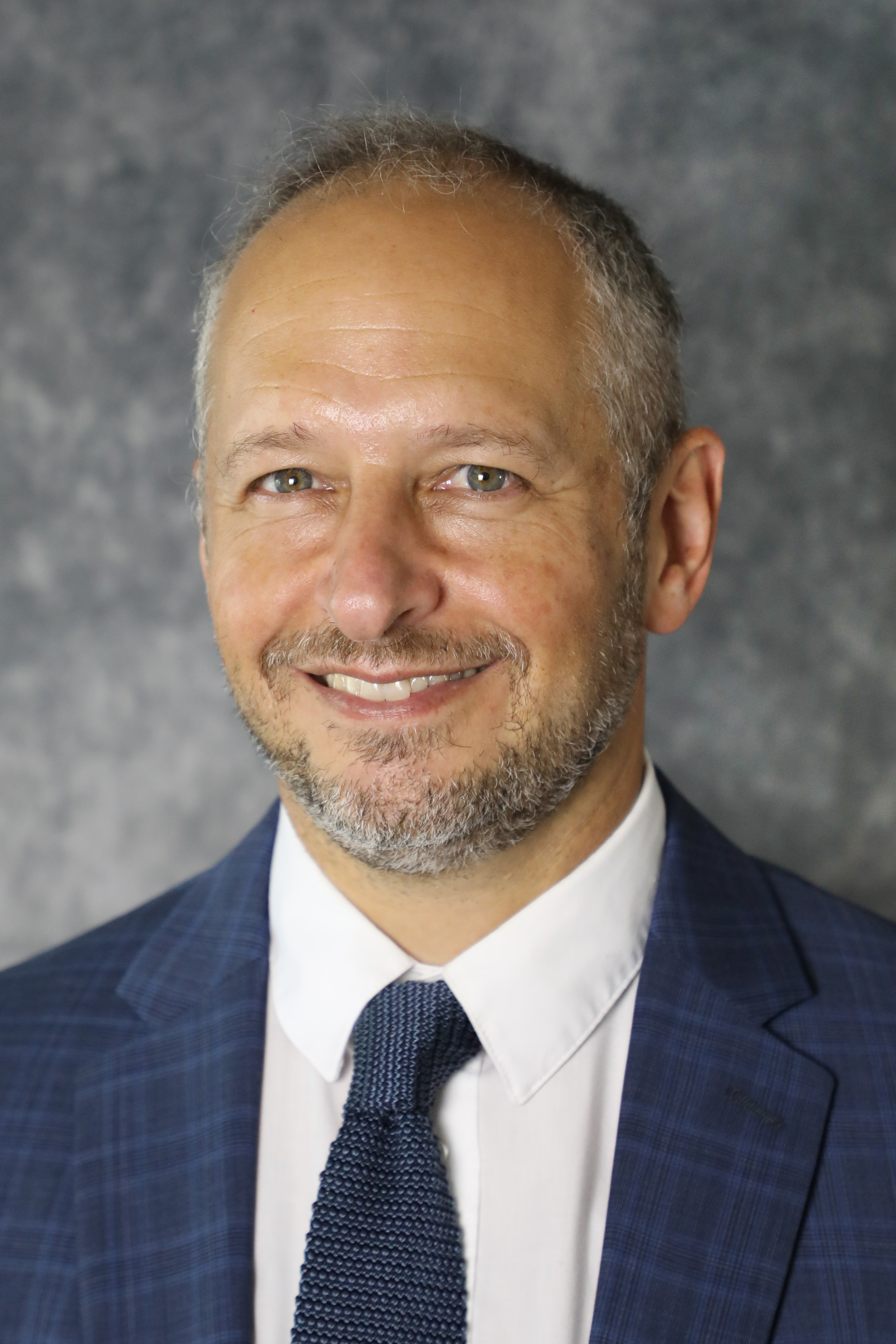Gabriel Aisenberg, MD, FACP

Professor of Medicine
Associate Program Director of the Internal Medicine Residency Program
Email: Gabriel.M.Aisenberg@uth.tmc.edu
Phone: 713-566-4550
Biography
Dr. Aisenberg joined the Division of General Medicine as an Assistant Professor in July 2010. He received his medical degree from the University of Buenos Aires School of Medicine in Buenos Aires, Argentina in 1989. He did his residency in Internal Medicine at Sanatorio Mitre in Buenos Aires, and fellowships at The University of Texas Health Science Center at Houston (UTHealth) McGovern Medical School and The University of Texas MD Anderson Cancer Center in Houston, Texas. Dr. Aisenberg is Board Certified in Internal Medicine, certified by the American Academy of Addiction Psychiatry for the treatment of opiate addiction, and is Board Eligible in Infectious Diseases.
Educational Philosophy
The dawn of every doctor’s relationship with knowledge is chaotic, as if what is to be known belonged in a different dimension. Aware of his own ignorance, the future academician must learn how to learn, how to connect the innumerable dots in the otherwise disorganized universe surrounding him.
As time elapses, the doctor becomes a doctor, and then, the moment to give back emerges. Now it is time to learn how to teach; to develop the techniques necessary to share with others the tools to organize the ever growing fund of knowledge.
The learner inherits from the teacher the tools to make the transmission of knowledge not only more efficient, but also more focused and determined; the goal is now to nurture the next generation of doctors. The teacher teaches how to learn.
Finally, some of the members of this new generation will be driven by the desire of repeating the circle; the older generation will teach how to teach, and then complete the academic cycle. New teachers are being born.
I believe that academic physicians should be aware of their own limited ability to know facts, and of the frailty of what we call evidence, for this evidence changes at a fast pace, forcing our minds and attitude to adapt. Scientific skepticism is the best tool to abide by this concept. Always challenge the current version of the truth: if after scrutiny the concept being challenged survives, then it becomes reliable; if it doesn’t, then new evidence replaces the old one.
Education
Medical Degree
University of Buenos Aires School of Medicine
Residency
Sanatorio Mitre – Buenos Aires, Argentina
Fellowship
Infectious Disease, The University of Texas MD Anderson Cancer Center in Houston, Texas
Fellowship
The University of Texas Health Science Center at Houston (UTHealth) McGovern Medical School
Expertise and areas of interest:
Medical education
Epistemology
Bioethics
Politics and health science
I define myself primarily as a bedside clinical educator, spending most of my time caring for patients while teaching students of every year of our medical School, interns and residents about the art and science of medicine. My participation in education includes also some contributions to the medical school new curriculum; problem-based learning; I am a member of the Academy of Master Educators.
My goals in all activities are:
– To increase the learners’ curiosity and promote self-accountability in their search for knowledge, skills, and professional behaviors, always keeping the patient at the center of their activities.
– To reflect on what he does and its outcomes with the aim to improve,
– To maintain currency in educational theory and practice, and
– To provide exemplary educational leadership
Past and Current Educational Activities:
– Bedside teaching in the Internal medicine wards at Lyndon B Johnson Hospital 15 days per month every month (3-4 third year medical students and 3 residents per group).
– Internal medicine core teacher (3 to 4 third year students; activity centered on physical examination skills)
– Problem Based Learning (PBL)
– Contributions to the new curriculum development in the areas of Rheumatology and Immunology
– Associate Program Director of Internal Medicine
– Lectures in the Intern boot camp of the Internal Medicine Residency
– Lectures for the Ambulatory Curriculum for the Internal Medicine Residency
– Scholarly Brainstorming project started in 2016. Initiative to increase the number of publications and scholarly presentations in conferences, by Internal Medicine residents
Honors/Awards/Appointments
– Dean’s Teaching Excellence Award (2011 through 2020)
– Problem Based Learning teacher, Certificate of Appreciation (2011 to 2013 and 2015-2019)
– The Outstanding General Medicine Faculty Award (2011, 2014, 2017-2019)
– John McGovern Award (2012, 2014)
– DuPont Master Clinical Teaching Award (2015)
– Alpha Omega Alpha Honor Society Award (2014)
– The Smythe Outstanding Teacher Faculty award (2015)
– Top Doctor 2016-2018, Houstonia Magazine
Board Certifications
American Board of Internal Medicine
Fellow, American College of Physicians
Selected publications
Aisenberg GM, Halphen JM. Influence of an educational manual on “code status” choice among hospitalized patients. Int Med 2014; 4: 1-4
Aisenberg G. In defense of the case report. Thoughts of an academic generalist. Consultant 2015; 55(1): 6-7
Collard K, De Cicco I, Liras I, Smith B, Aisenberg G. A dying patient with no advocate. University of Texas at Houston Journal of Medicine 2016; 1(1):15-17
Aisenberg GM, Krucke GW. Medical education: knowledge, skepticism, and the central role of the individual patient. Consultant 2020; 60(1):80-82